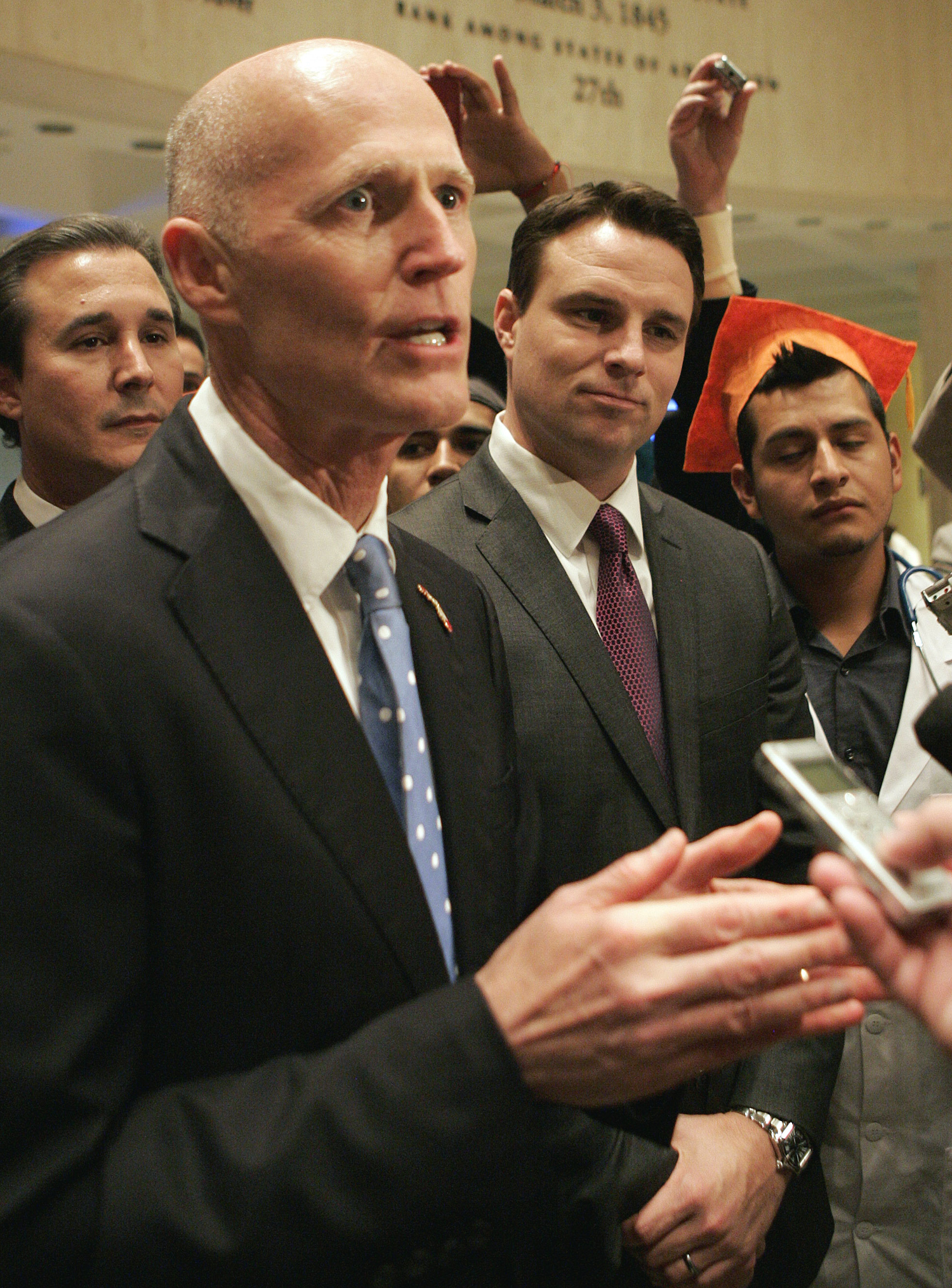
A few months ago, I wrote about an epidemic of fake Republican scandals that Democrats were hyping for 2014, starting with a nothingburger of a whatever-gate involving Florida Governor Rick Scott. My point was that political scandals rarely get traction, and shouldn’t get traction, without a semi-plausible link to significant public policies. Let me put it a different way: Damaging scandals look more like the two latest messes involving Governor Scott.
The first involves Scott’s support for a controversial Miami-to-Orlando rail project known as All Aboard Florida, when the company pushing it had financial ties to his chief of staff. The second involves Scott’s support for a controversial natural gas pipeline to North Florida, when he owned a stake in the company building it. You probably haven’t heard about these messes, because they’re pretty obscure. They’re also mini-messes, especially for Scott, who was once CEO of a hospital chain that paid a record $1.7 billion fine for fraud committed on his watch.
What could turn these messes into scandals is their potential link to public policies—in particular, to lame and unpopular policies that could look even worse if Scott’s probable opponent, Republican-turned-Independent-turned-Democrat Charlie Crist, can frame them as corrupt policies. There’s nothing inherently wrong with government support for a train linking Miami and Orlando—though my pal Carl Hiaasen is not an All Aboard Florida fan—but it looks pretty sketchy after Governor Scott (at the urging of his conflicted chief of staff) rejected $2.4 billion in federal money for a high-speed rail project that would have eventually linked Miami, Orlando and Tampa. Similarly, there’s a case to be made for a natural gas pipeline to Florida, but it’s hard to square with Scott’s support for utilities waging an outrageous war to prevent homeowners from going solar in the Sunshine State.
Asking questions about an opponent’s record can be good politics, but answering them can be even better politics. It’s one thing to ask why Scott rejected federal money for a shovel-ready high-speed train that promised 27,000 jobs and enjoyed strong support from Florida’s business community; it’s another thing to suggest that Scott was clearing the way for his crony’s speculative slow-speed train. It’s one thing to ask why the Sunshine State is intentionally skipping a nationwide solar revolution that is reducing carbon emissions while saving ratepayers money; it’s another thing to suggest that Scott has a personal interest in pushing gas instead.
Scott will have a dramatic financial advantage in the fall, and it’s not clear whether voters will accept Crist’s latest political change of clothes, especially in what’s shaping up as a Republican year. But Scott is unpopular—he’s still best known as the Medicare fraud guy—and so are his policies. The challenge for Democrats is to link the personal to the political. Real scandals can do that.
More Must-Reads from TIME
- Why Trump’s Message Worked on Latino Men
- What Trump’s Win Could Mean for Housing
- The 100 Must-Read Books of 2024
- Sleep Doctors Share the 1 Tip That’s Changed Their Lives
- Column: Let’s Bring Back Romance
- What It’s Like to Have Long COVID As a Kid
- FX’s Say Nothing Is the Must-Watch Political Thriller of 2024
- Merle Bombardieri Is Helping People Make the Baby Decision
Contact us at letters@time.com